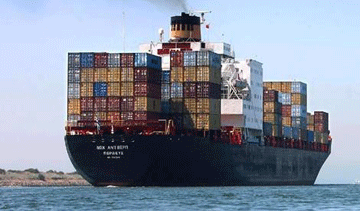
South Korea free trade a done deal; could boost economy by $1.7B
by Steve Rennie, The Canadian Press

According to a government release, the deal is expected to increase Canadian exports to South Korea by 32 per cent and expand the economy by $1.7 billion

Bilateral trade between the two countries last year was $5.7 billion, up from $3.5 billion in 2010.
SEOUL, South Korea—Prime Minister Stephen Harper says a free-trade deal with South Korea is a major boost for Canadian exporters looking for a toehold into lucrative Asian markets.
The deal ends nearly a decade of talks and marks Canada’s first free-trade foray into the Asia-Pacific region, which Harper considers essential for the Canada’s economic well-being.
“It gives Canadian businesses access to a booming G20 economy but more than that—and I can’t emphasize this enough—the key supply chains that begin in Korea fan out all across Asia.”
Once in force, it will eliminate virtually all tariffs between the countries. Korea will cut 81.9 per cent of duties on the first day of the deal and Canada will remove 76.4 per cent.
But some tariffs, particularly in agriculture, will take more than a dozen years be fully phased out.
Government documents note Canadian firms stand to gain because South Korean tariffs currently average about three times Canada’s—13.3 per cent as opposed to 4.3 per cent respectively.
Officials say fully negotiated—unlike the CETA agreement-in-principle— deal could come into effect within a year.
The agreement is also differs from CETA in that it does not involve sub-national procurement, so Ottawa will not require provincial approval.
Stakeholders representing the aerospace, pork and beef industries were enthusiastic about the deal’s potential.
According to a government release, the deal is expected to increase Canadian exports to South Korea by 32 per cent and expand the economy by $1.7 billion.
The biggest winners from the Canadian side will likely be in the agriculture sector, particularly beef and pork, the forest industry and seafood exporters, all of whom face stiff tariffs for shipping into the Korea market of 50 million people.
But Ottawa was already bracing for blow-back from Ontario and the domestic auto sector, which will see a 6.1-per-cent duty on Korean exports of Hyundai and Kia vehicles eliminated over two years once implemented, making the strong-selling brands even more competitive.
Indeed, the ink on the agreement was barely dry early Tuesday when one of Canada’s leading automakers announced it refuses to support the deal, saying South Korea will remain “one of the most closed automotive markets in the world.”
The automaker said South Korea maintains a closed market through non-tariff trade barriers and “actively intervenes in its currency to unfairly subsidize its exports.”
“Ford has proven that it can compete and win in the global marketplace when there is a level playing field,” said president and CEO Dianne Craig.
“But no Canadian manufacturer can compete with a market controlled by non-tariff barriers and currency manipulation.”
Ontario had asked Ottawa to at least match the U.S. negotiated deal with Korea by securing a five-year phaseout of tariffs, and to include a “snap-back” provision by which tariff reductions could be rolled back if it was shown that Seoul was using non-tariff barriers to thwart Canadian exports of autos and parts into the country.
Neither of those terms where included in the final deal.
Unifor, which represents workers at Ford and other automakers, said in a statement that the agreement “poses a serious threat to Canada’s auto industry” and that Prime Minister Harper has failed to address a trade imbalance.
On Monday, Ontario Premier Kathleen Wynne, who was aware of the details, had mixed reviews of the agreement.
“In terms of the agri-food sector, we are very optimistic about the opportunities that a Canada-Korea deal might provide,” she said. “We do have reservations about the auto sector.”
Material provided by the federal government estimated that damage to the Ontario auto sector would be limited to about 0.2 per cent of production, or 45,000 vehicles annually, noting that 88 per cent of cars produced in Canada are for export.